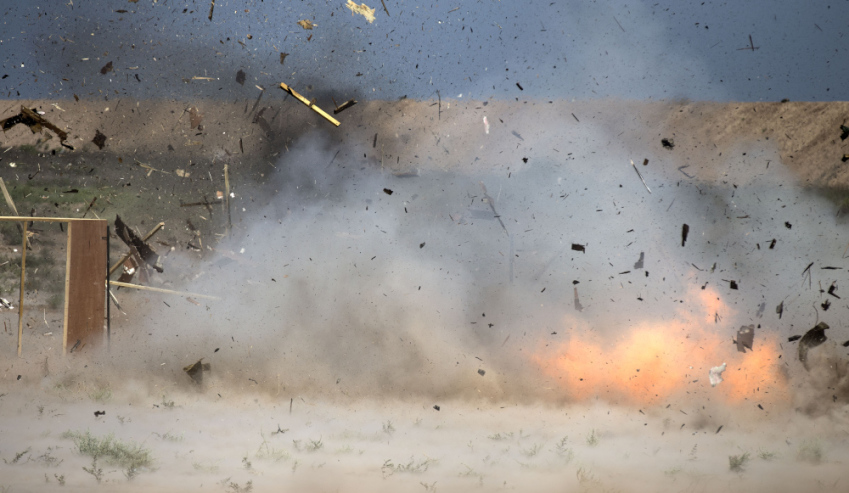The parliamentary joint committee on intelligence and security (PJCIS) has tabled reports today supporting the continued listing of Boko Haram and Islamic State as terrorist organisations under the Criminal Code Act, and the declaration of Jabhat al-Nusra under the Australian Citizenship Act.
To continue reading the rest of this article, please log in.
Create free account to get unlimited news articles and more!
The re-listing of Boko Haram and Islamic State, which came into effect in July, make it a criminal offence to be a member of, participate in or provide support to either organisation.
Islamic State is an Iraq and Syria-based Sunni extremist group and former al-Qaeda affiliate that adheres to a global jihadist ideology. It is one of the world's deadliest and most active terrorist organisations and conducts daily attacks on security forces and civilians in Iraq and Syria; and against rival opposition groups.
Boko Haram has historical ties with al-Qaeda in the Islamic Maghreb and al-Shabaab, but these have dissipated due to Boko Haram leadership's more recent alignment with Islamic State.
Boko Haram is an officially recognised affiliate of, and ideologically aligned with, Islamic State. The Australian government says Boko Haram has not made statements specifically threatening Australians or Australian interests, however, the group has issued statements threatening Westerners and Western interests in general.
The chair of the PJCIS, Andrew Hastie, said, "Boko Haram and Islamic State are two of the most bloodthirsty terrorist organisations operating in the world today.
"The committee was satisfied that Boko Haram and Islamic State continue to meet the relevant thresholds to be listed as terrorist organisations."
The PJCIS has a similar review power under the Australian Citizenship Act 2007, which provides for dual citizens aged over 14 years to lose their Australian citizenship if they engage in certain conduct on behalf a "declared terrorist organisation".
The Minister for Immigration’s declaration of Jabhat al-Nusra in July 2017 was the second to have taken place under the provisions, the first being Islamic State in May 2016.
“The committee was satisfied that Jabhat al-Nusra – which is already a listed terrorist organisation – is opposed to Australia, Australia’s interests, values, democratic beliefs, rights and liberties, so that if a person were to fight for, or be in the service of, the organisation the person would be acting inconsistently with their allegiance to Australia," Hastie said.
The Australian National Security website lists the following as the most significant attacks either claimed by, or reliably attributed to, Islamic State since the group was last proscribed (in July 2014):
- 4 to 10 January 2017: in a wave of attacks, Islamic State claimed two suicide and five improvised explosive device operations targeting Shia civilians in Baghdad, killing and wounding approximately 300 people.
- 1 January 2017: Islamic State claimed responsibility for a shooting at a popular nightclub in Istanbul, Turkey on New Year's Eve, which killed 39 people and wounded approximately 70.
- 19 December 2016: an individual drove a truck through a crowded Christmas market in Berlin, Germany; killing 12 and injuring 49 people. Islamic State claimed that the attacker was one of its soldiers.
- 14 July 2016: an individual in a large truck deliberately drove through a crowd gathered for French National Day (formerly Bastille Day) celebrations in Nice, France, killing 84 people. Islamic State claimed that the attacker was one of its soldiers.
- 3 July 2016: Islamic State claimed responsibility for detonating a vehicle-borne improvised explosive device outside a restaurant in a shopping complex in the Shia Karrada district of Baghdad, Iraq, which killed 292 people and injured hundreds more.
- 12 June 2016: a gunman shot and killed 50 people and wounded approximately 50 others at a nightclub in Orlando, Florida. Islamic State claimed the attack was carried out by an Islamic State fighter.
- 22 March 2016: Islamic State claimed responsibility for two explosive attacks at the Zaventem Airport and Maalbeek Metro station in Brussels, Belgium, killing 32 and injuring over 340.
- 1 February 2016: a car bomb, followed by two suicide bombings, killed more than 70 people and injured a further 40 near the Shia Sayyida Zaynab shrine in Damascus, Syria. Islamic State claimed responsibility for the attack.
- 11 to 28 January 2016: Islamic State launched a wave of attacks against Iraqi soldiers and pro-government fighters in Ramadi, Iraq. The suicide attacks, sniper fire and roadside bombs killed more than 80 people.
- 11 January 2016: Islamic State claimed responsibility for a series of attacks against civilian targets in Iraq, killing 51 people. The attacks included a car bombing and armed attack against the Jawaher shopping centre in Baghdad, a double suicide bombing at a casino in Muqdadiya and a car bombing near a restaurant in Baquba.
- 13 November 2015: a group of attackers conducted simultaneous armed assaults against a concert hall, a major stadium, restaurants and bars in Paris, France, killing 130 and injuring hundreds more. Islamic State claimed responsibility for the attacks.
- 10 August 2015: Islamic State claimed responsibility for two bombings in Baquba and Kanaan in Iraq's Diyala province, which killed nearly 60 people and injured a further 105.
- 17 July 2015: Islamic State claimed responsibility for a car bomb that exploded in a crowded market in the Iraqi town of Khan Bani Saad, killing 115 people and injuring a further 170.
Islamic State has promoted terrorist attacks in Australia and has openly praised terrorist incidents in Australia, including:

 Login
Login







